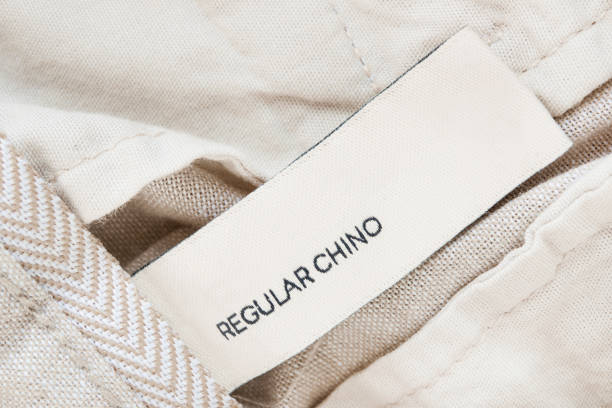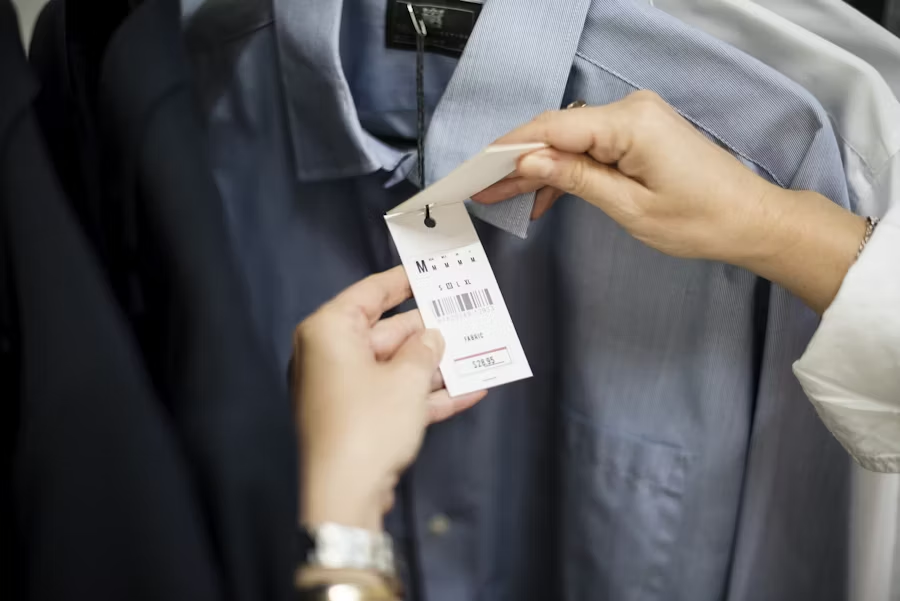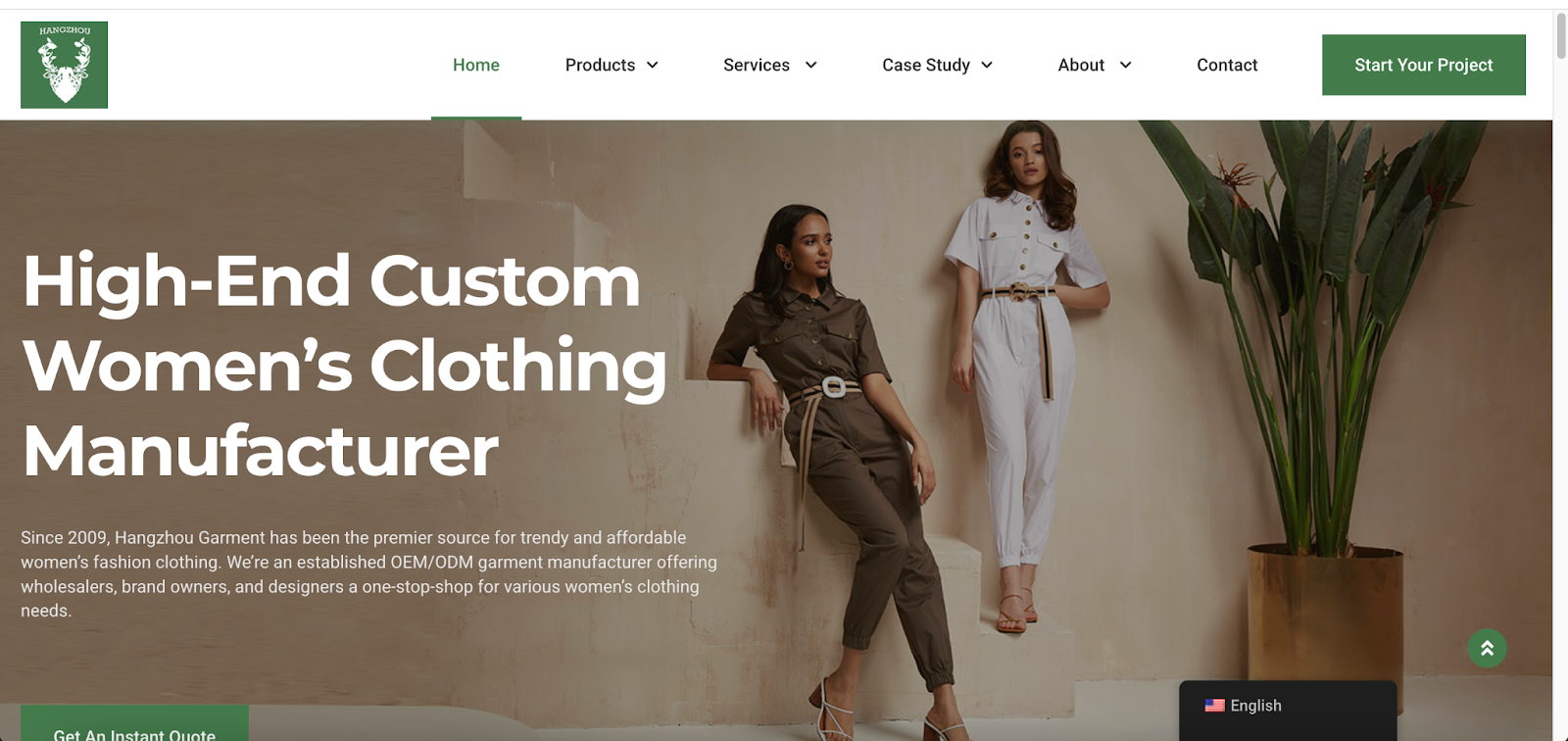In an industry driven by branding, speed, and customization, private label fashion has become a smart, scalable model for fashion entrepreneurs. Whether you’re launching a new line or adding to an existing catalog, understanding what private label means—and how it works—can help you build a profitable, recognizable clothing brand with fewer upfront risks.
This comprehensive guide explores what private label means in fashion, the benefits, real-world examples, why it can be more affordable, and how you can get started.
What Is a Private Label in Fashion?

Private label fashion refers to clothing products manufactured by a third-party supplier but sold under your own brand. This means you don’t own the factory or make the garments yourself—you own the brand identity and guide how the product looks and feels.
How Private Label Works in the Fashion Industry
- Third-Party Manufacturing with Your Branding
A factory or clothing manufacturer private label produces the clothes, but they are branded with your custom labels, logos, tags, and packaging. The products appear as if they are entirely made by your brand.
- You Choose the Styles and Customization
Depending on the supplier, you may choose from existing templates or request minor design modifications. Some manufacturers offer semi-custom or fully custom private label options for larger orders.
- You Control the Marketing and Pricing
Although you didn’t physically make the clothes, you control everything from how they’re photographed to how they’re priced and sold.
- Flexible for Various Fashion Niches
This model is used in everything from boutique dresses to private label fitness apparel, allowing you to target different consumer groups without building your own factory.
What Is an Example of a Private Label?

Private label fashion is everywhere—even if most consumers don’t realize it. Many major and indie brands rely on third-party manufacturing but maintain a unique brand identity.
Examples of Private Label Brands in Fashion
- ASOS Design (by ASOS)
While ASOS is a retail platform, its in-house “ASOS Design” collection is a private label line created with third-party factories. They control the design but outsource the production.
- Target’s In-House Brands (like All in Motion)
Retail giants like Target use private label to launch exclusive lines. “All in Motion,” their activewear collection, is manufactured by partners but branded under the Target umbrella.
- Amazon Private Label Brands (e.g., Goodthreads, Core 10)
Amazon has numerous private label fashion lines offering everything from men’s basics to private label fitness apparel, developed with cost-efficiency in mind.
- Boutique Brands & Shopify Startups
Smaller online brands often start with private label clothing from platforms like Alibaba or fashion-focused sourcing agents. These brands build loyalty by combining style, quality, and branding—without making the garments themselves.
Why Is Private Label Fashion Cheaper?
Private label fashion offers significant cost advantages, especially for startup brands. From reduced labor costs to efficient supply chains, the savings can be passed on to both the business and consumers.
Key Reasons Private Label Is More Affordable
- Shared Manufacturing Costs
You’re not building a factory or investing in machines. Instead, you share the costs with other brands by working with a clothing manufacturer private label who produces for multiple clients.
Less capital investment required
Manufacturers already have trained labor and equipment
You only pay for the units you order
- اقتصاديات الحجم
When you order in bulk, you benefit from reduced per-unit costs. This makes private label particularly attractive for fast fashion or seasonal collections.
Lower costs on fabrics, trims, and labor
More favorable pricing for large-volume orders
Opportunity to scale profitably
- No Retail Middlemen
You often purchase directly from the manufacturer, eliminating additional markup from wholesalers or distributors.
Direct-to-consumer pricing flexibility
Better control over profit margins
Reduced reliance on third-party retailers
- Minimal R&D and Design Costs
If you’re choosing from pre-existing styles, you don’t need to hire in-house designers or go through expensive prototyping stages.
Lower upfront product development expenses
Faster time-to-market
Ideal for testing new styles with minimal risk
Benefits of Private Label Fashion

Choosing a custom private label model brings many strategic advantages beyond just cost. It’s an excellent way to create a distinct brand presence while maintaining agility in sourcing and production.
Build a Unique Brand Identity
You have full control over your brand’s visual elements—logos, labels, packaging, and marketing.
- Creates customer recognition and loyalty
- Distinguishes you from dropshippers and resellers
- Enables premium pricing with strong branding
Product Control Without Production Hassles
With the right manufacturer, you can control fabric, fit, and finishing without owning the production line.
- Adjust designs, colors, and trims easily
- Monitor quality through third-party QC
- Maintain consistency across collections
Scalable for Growth
Private label lets you start small and grow your catalog or volume over time as sales increase.
- Test markets with low-risk minimum order quantities
- Expand into new categories like private label fitness apparel or accessories
- Easy to repeat or refine best-selling designs
Faster Time-to-Market
Compared to full custom development, private label fashion is much quicker to produce and deliver.
- Pre-developed styles reduce lead times
- Get new products online or in-store faster
- Stay ahead of seasonal fashion trends
Is Private Label the Same as White Label?
While the two terms are sometimes used interchangeably, they are not exactly the same.
Key Differences Between Private Label and White Label
| ميزة | علامة تجارية خاصة | White Label |
| Customization Level | High – Branding and partial design | Low – Generic product, just relabeled |
| Brand Exclusivity | Unique to one brand | Sold to multiple brands |
| Product Development | Some input on design/materials | No input on product design |
| Ideal For | Fashion brands focused on differentiation | Budget-oriented resellers |
Private label is ideal if you want to build a brand with long-term equity. White label is faster but limits differentiation.
How to Start a Private Label Fashion Brand

If you’re ready to explore private label fashion, here are the basic steps to get started:
Define Your Brand & Niche
Clarify who your audience is and what your clothing line will represent.
- Who are you designing for—women, men, kids, or a niche like private label fitness apparel?
- What’s your brand tone—minimalist, trendy, luxury, sustainable?
- What problem or desire does your brand solve?
Find a Reliable Private Label Clothing Manufacturer
Research and reach out to clothing manufacturer private label partners who offer the product range, MOQ, and customization options that fit your needs.
- Ask about fabric options, sample timelines, and production lead times
- Compare quality across samples before choosing
- Use sourcing agents if you’re new to dealing with manufacturers
Create Your Product Line
Select from the manufacturer’s catalog or request semi-custom changes to fit your brand identity.
- Modify colors, cuts, or labels
- Focus on creating a strong first collection
- Consider seasonality and trends in design choices
Brand It Your Way
This is where custom private label features shine.
- Add your logo to inner tags, outer labels, and packaging
- Build an unboxing experience that resonates
- Invest in lifestyle photography and compelling product descriptions
Launch and Market
Choose your sales channels—e-commerce, social media, pop-up shops, or wholesale partnerships.
- Start small with a limited SKU range
- Use social media ads and influencer marketing
- Gather customer feedback for future collections
Final Thoughts
Hangzhou Garment is dedicated to solving the industry problem of small orders and the inability to find manufacturers to cooperate with small brands. In serving wholesalers, designers, and other brands, we provide garment solutions that follow trendy styles and serve from before to after the sale.
نحقق رسالتنا من خلال شبكة توريدنا المتينة ومراقبة إنتاجنا لتلبية طلبات الجملة مع خفض التكاليف بما يتناسب مع متطلبات أي علامة تجارية. وللحفاظ على جودة ثابتة والالتزام بالمعايير الدولية الصارمة، نتعاون مع موردي أقمشة وإكسسوارات ملتزمين بأخلاقيات المهنة.
Private label fashion is a gateway for entrepreneurs to build meaningful, profitable clothing brands—without the operational burden of running a factory. By working with the right clothing manufacturer private label, you can create a high-quality line that reflects your vision and resonates with your audience.
Whether you’re targeting everyday basics, statement pieces, or niche segments like private label fitness apparel, private labeling offers a smart, scalable path into the fashion world.




